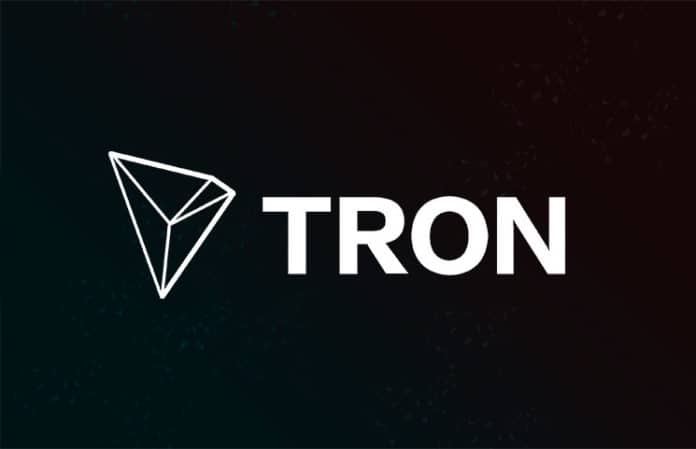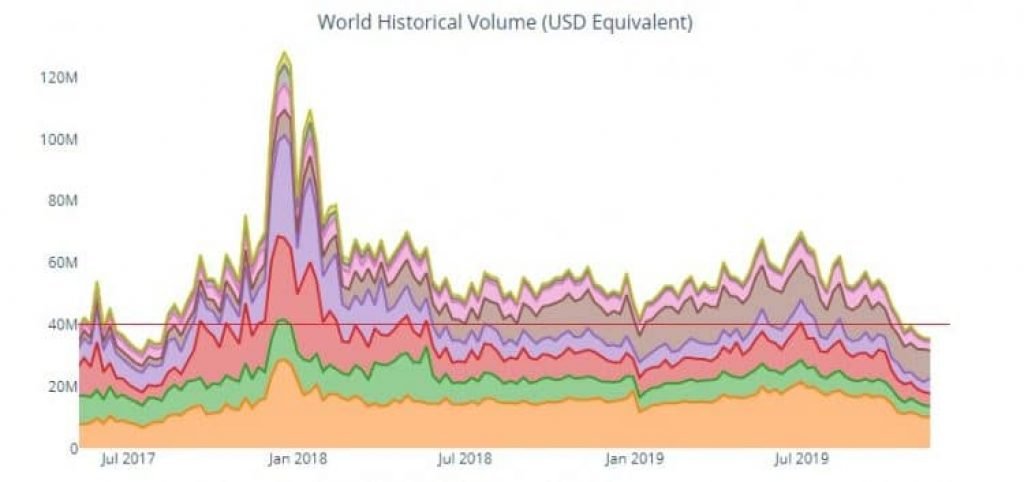2019-4-2 21:17 |
Everywhere you look these days, blockchain is finding a new way to apply itself to technology. From currency to smartphones and now even the way we connect to the internet, the potential applications for blockchain are far-reaching, with real advantages for not only the financial sector but the security sector as well.
…Or so it would seem at first glance. The idea behind using a P2P network to secure the way we connect to the internet would, on the surface, appear to be a fantastic idea. We’re already using secure VPN tunneling to encrypt the traffic coming to and from our computers, why not remove another link in the security chain by further scattering our connection data to the ethereal winds of the internet?
Blockchain VPN is a solid idea on paper but finds itself struggling through the mire of practicality and the restrictions often placed on a burgeoning new technology. There are a few potential problems blockchain-style VPN services are already running into, and most of them run contrary to what VPN users value in their encryption services.
How blockchain VPN worksAs a P2P network, the basic idea behind a blockchain-style VPN is simple. Decentralized service nodes share their bandwidth with users, giving each connecting client a potential exit point for their connection. The blockchain component comes in the form of crypto tokens being used to incentivize each service provider to maintain nodes. The more bandwidth a service node shares to more users, the more currency tokens they will inevitably acquire. With the addition of new service nodes and shared bandwidth, more tokens are exchanged, more bandwidth is created, and the more secure and fast the network becomes.
Depending on the protocols and standards put in place for each service node, actual security and privacy could vary wildly. Standard VPN practices, like “no-logs” policies, can be difficult to enforce without strictly controlled centralized locations. The eventual implementation for blockchain VPN services is a network where data is transmitted in pieces to multiple nodes at the same time, ensuring that as long as security is maintained on at least one node in a given packet’s route, it would be impossible to reassemble that packet in its entirety. We’re still a long ways off from that kind of service, however, and in its current form blockchain, VPN looks a lot like a traditional centralized VPN service with a few glaring downsides.
Blockchain VPN is largely untestedWhile P2P communication networks are nothing new (the TOR browser has been making use of this technology for a while now), the concept behind the handful of blockchain VPN services is mostly untested and still in developmental stages.
When looking at the few services currently starting to offer this style of VPN, the service rollout comes in distinct stages, with every service currently operating in stage 1. This involves the same centralized server locations that most VPNs operate on, providing most of the security protocol and exchange services from a managed server location. You’ll notice this is how pretty much everyone currently does VPN service.
Network rollout comes with a lot of unknownsPart of this Stage 1 rollout is to begin decentralizing traffic to service provider nodes. These nodes are given currency tokens as an incentive to provide bandwidth to the service’s users. In theory, provider nodes are given a strong motive for giving lots of secure, high-quality bandwidth to their users at this stage.
One of the big problems at this stage is that each provider may vary in quality and actual service security. While the overarching service provider sets standards for tunneling protocols, encryption, and the software behind the service itself, that still leaves a lot of open variables for each provider node, meaning your experience could swing from top-notch to bottom-of-the-barrel very quickly.
Stage 2/3 involves further decentralization to individual provider nodes until the end-point service network grows large enough to maintain usability without the assistance of the centralized nodes. This stage of the process is almost entirely theoretical at this point, with the actual number of required provider nodes for a given service load being only speculation. There’s also no clear answer on when the ratio of service nodes to end-user clients will hit a tipping point. With too many users and not enough nodes, what should be a fast network by design could slow to a crawl as overloaded nodes struggle to maintain user bandwidth.
Specific numbers for tipping points and required service nodes have almost assuredly already been calculated by the companies aiming to provide blockchain VPN, but that still doesn’t represent real-world testing and application. As a result, a lot of the viability of blockchain VPN networks in regards to performance is up in the air.
What about security?It’s also not entirely clear how secure each individual node across the network will be. While the encryption protocol itself can largely be assured to be secure, this doesn’t account for specific logging policies and procedures or take into account systems that may already be compromised. No matter how strict, specific, and secure the service providers policies are, it’s always going to be harder to maintain security on a decentralized node rather than a centralized one that is under the provider’s direct control.
Blockchain services are trying to circumvent this with enough node providers to completely remove any hope of reassembling a request even if encryption is broken. But that’s if – and only if – the network reaches critical mass and reaches “stage 3” deployment. Prior to that happening, these P2P VPN networks largely operate as a traditional VPN service provider does, but with less control over their individual nodes scattered across the globe.
Blockchain is only one small piece of the puzzleBlockchain is a bit of a buzzword right now, and the internet community is going to jump on almost anything labeled “blockchain.” These blockchain VPNs are, at their core, just P2P networks with encrypted tunneling; the blockchain aspect is largely a method being used to get provider node adopters on board with the program. These services take advantage of the Ethereum blockchain, a currency developed around the idea of decentralized application (Dapp) executions. The currency itself is used to pay service nodes for their code execution, in this case, network routing and encryption.
Using the Ethereum platform in this way is almost completely untested. While there are many developers across a range of industries looking at Ethereum applications, many of them are in early experimental stages. This includes P2P networks being used as a VPN service. There’s no guarantee a blockchain VPN will function correctly when brought to scale.
The very nature of an Ethereum-based VPN does encourage larger service providers to adopt the platform and share their bandwidth to earn currency. This increases the chances of established, secure, and functional nodes joining the network and providing services to end-user clients, but it’s also dependent on each individual node to see value in the chain itself. If the network doesn’t get enough strong node providers, it instead defaults back to what is largely a standard VPN network, with less focus on centralized infrastructure to provide smooth operation for the network’s users.
Ethereum is, for the most part, a savvy way to get good service providers invested in the network. Blockchain itself doesn’t provide significant advantages over a traditional P2P network beyond a higher chance of network scalability.
Real-world commercial scaling relies on platform adoption to be successfulOne of the biggest limiters to the blockchain VPNs currently in play is platform adoption by service providers. In order for the network to scale in any capacity, good service providers must become a part of the network in order to operate successfully. This is going to rest heavily on service nodes seeing the value in becoming part of an Ethereum network. Whether or not that will happen is entirely up in the air for the time being.
As stated above, without the adoption by global providers, blockchain VPNs are just normal VPN services, in some cases with far less infrastructure in place than a VPN provider dedicated to centralized servers. This can be detrimental, particularly during platform rollout stages, because adoption relies entirely on client-server usage. Without enough users, there’s almost no incentive for providers to become a part of the network. Without enough providers, there’s almost no incentive for clients to become part of the network.
Unfortunately for blockchain VPNs, this means most of their success will rely on hitting a critical break-point where everything works. This circular dependency is a risky way to launch a new platform without an established user base. Some of this is circumvented by ICOs that guarantee a certain number of participants in the network, but it still falls short of actual operation capacity.
Blockchain VPN: Success or failure?The biggest takeaway for blockchain VPN is that “it could work if…”, but there’s a lot of “ifs” following that statement. Ethereum itself is in relative infancy even compared to the short lifetime of blockchain as a whole, and Ethereum-based VPN services are entirely unproven with a lot of risks involved. It remains to be seen whether it will be a successful endeavor or a failed one.
The post Why VPN on Blockchain is a Terrible Idea appeared first on CaptainAltcoin.
origin »Bitcoin price in Telegram @btc_price_every_hour
High Performance Blockchain (HPB) на Currencies.ru
|
|






















